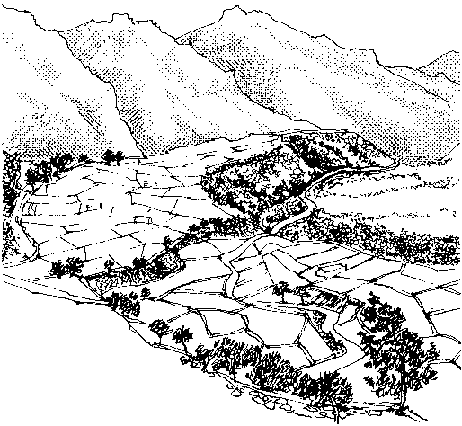
Our common future: The WCED report
INTEGRATED WATERSHED MANAGEMENT IN THAILAND aid for such projects should be increased
The World Commission on Environment and Development (WCED) was created by General Assembly Resolution 38/161 adopted by the 38th Session of the United Nations in autumn 1983. In accordance with the resolution, the Secretary-General appointed the chairman and vice-chairman of the Commission, who in turn selected the remaining 21 members, half of whom were required to be from the developing world.
The Commission took its mandate to the people by holding a series of public meetings around the world to solicit comments and statements from government leaders, scientists and experts, non-governmental organizations and the general public.
In April 1987, the Commission presented its report, "Our common future" (more usually called the Brundtland Report, after Commission Chairman Gro Harlem Brundtland, Prime Minister of Norway). The report has been published in paperback by the Oxford University Press, Oxford, United Kingdom.
The primary message of the report is that there can be no sustained economic growth without a sustainable environment, and the time has come, therefore, to elevate sustainable development to a "global ethic" in which protection of the environment is recognized as the foundation on which long-term social and economic development rests.
According to the Commission, old approaches to development and environmental protection will increase social and environmental instability. Since the real world of interlocked economic and ecological systems will not change, the policies and institutions concerned must do so.
"Those responsible for managing natural resources and protecting the environment are institutionally separated from those responsible for managing the economy", said the Commission, noting that most environment agencies were created to repair damage caused by other government ministries concerned mainly with production and economic growth.
The failure of governments to make the bodies whose policy actions degrade the environment responsible for ensuring that their policies prevent such degradation was recognized as one of the great institutional flaws in coping with environment/development problems.
The challenge, according to the Commission, is to give the central economic and sectoral ministries responsibility for the quality of those parts of the human environment affected by their decisions, and create strong environment ministries to enforce those responsibilities.
The report focused on six priority subject areas: population; food security; the loss of species and genetic resources; energy; industry; and human settlement.
Forestry issues were discussed in a number of specific instances.
There was emphasis on the need to reform forest revenue systems and concession terms which the Commission stated, "could raise billions of dollars of additional revenues, promote more efficient long-term forest resource use and curtail deforestation".
Calling wood-fuel "the vanishing resource", the Commission stated that many countries have no choice but to organize immediately their agriculture sectors to produce large quantities of wood and other plant fuels. Commercial farm forestry, energy plantations and greenbelts were considered to be ways of meeting urban fuelwood needs, while in wood-short rural areas it may be necessary to treat wood like food and grow it as a subsistence crop employing various agroforestry techniques.
Regarding ecosystem conservation, the Commission noted that programmes to preserve forest ecosystems must start with the local people who are both victims and agents of destruction.
High priority must be given to food production. Farmers should be helped to practice more intensive agriculture, and governments should also ensure "that conservation policies are designed with the benefit of agriculture foremost in mind".
The Commission called plant and animal genetic resources an untapped economic resource worth billions of dollars, but said that a major difficulty in realizing this economic potential, apart from the rate of tropical deforestation, is that most of the financial benefits accrue to the industrialized countries with the financial means and technology to capitalize on the financial gains, while the resources themselves are owned by developing countries who as yet have not shared in the profits.
The Commission called on development assistance programmes to devote a larger portion of aid to investments needed to enhance the environment and the productivity of the resource sectors, including reforestation and fuelwood development, watershed protection, soil conservation, agroforestry, and the rehabilitation of irrigation projects.
The Commission noted that "an action plan for tropical forests would cost 1.3 billion a year over the course of five years. This annual sum is the equivalent of half a day of military expenditure worldwide."
The findings and recommendations of the Commission appear to lend strong support to the priorities and strategies of the Tropical Forestry Action Plan, the objective of which is to help developing countries achieve conservation and the sustainable development of forest resources. The integration of tree growing and agriculture; the better use of wood for energy; support to food security through agroforestry and small scale forest-based industries; the conservation of ecosystems; people's participation; and institutional changes are all among the recommended priorities of the TFAP.
R. Pardo